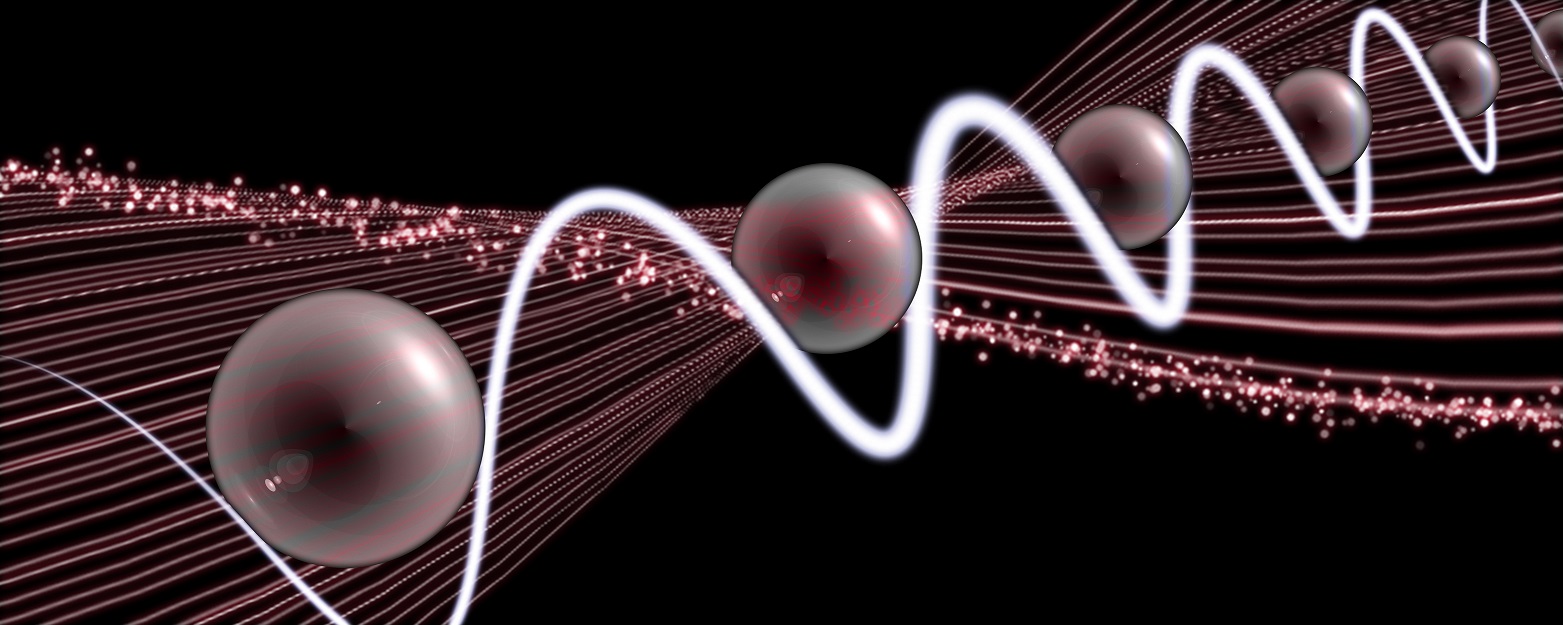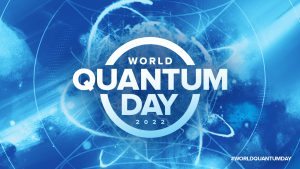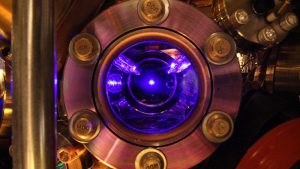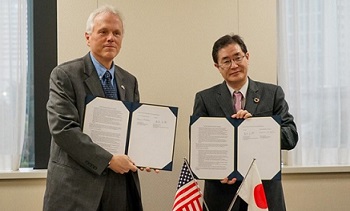QIS CENTERS
The National Quantum Initiative Act calls for the NSF and DOE to establish new Centers focusing on QIS research and discovery. In alignment with this goal, NSF announced the Quantum Leap Challenge Institutes solicitation and first round of Awards. DOE announced the National QIS Research Centers funding opportunity FOA and Awards. These Centers bring together multidisciplinary teams to tackle some of the most complex and urgent problems in quantum information science and engineering. With connections to universities, national laboratories and industry, these NQI Centers will explore quantum frontiers, stimulate QIS technology development, and expand QIS training opportunities. NQI Centers compliment core programs and other center-scale efforts that connect with QIS. In addition, the National Defense Authorization Act for FY 2020 authorized the Department of Defense to explore establishing additional Research Centers to accelerate quantum information science and technology.
NSF Quantum Leap Challenge Institutes
- Q-SEnSE: Quantum Systems through Entangled Science and Engineering (NSF QLCI Award)
- HQAN: Hybrid Quantum Architectures and Networks (NSF QLCI Award)
- CIQC: Challenge Institute for Quantum Computation (NSF QLCI Award)
- QuBBE: Quantum Sensing for Biophysics and Bioengineering (NSF QLCI Award)
- RQS: Institute for Robust Quantum Simulation (NSF QLCI Award)
DOE QIS Research Centers
- Q-NEXT · Next Generation Quantum Science and Engineering
- C2QA · Co-design Center for Quantum Advantage
- SQMS · Superconducting Quantum Materials and Systems Center
- QSA · Quantum Systems Accelerator
- QSC · The Quantum Science Center
NDAA QIS Research Centers
CORE PROGRAMS

Credit: Kelly Cooper Younge, University of Michigan
The National Quantum Initiative calls for strong QIS R&D programs at all levels. Core programs from several disciplines, with efforts both small and large, helped get the field of QIS where it is today. They explore a diverse range of platforms and approaches, and nurture a culture of discovery. Substantial programs for individual investigators, teams, hubs, and Center-scale efforts are supported by several U.S. Departments and Agencies.
Links to some core programs:
- NIST QIS page, NIST Physical Measurement Laboratory (PML), and NIST joint institutes: JQI, QuICS, and JILA
- NSF QISE page and NSF Connections in QIS programs, and ongoing NSF center-scale Activities with QIS Components
- DOE QIS page and DOE Program Offices QIS Pages and resources
- NASA Quantum Artificial Intelligence Laboratory
- DOD OUSD (R&E) and DOD Vannevar Bush Faculty Fellowship,
- DOD Basic Research at DARPA, ARL, ARO, NRL, ONR, AFRL, AFOSR, and the AFRL Innovare Center
- NSA/LPS solid state and quantum physics
- IARPA quantum programs
QUANTUM CONSORTIUM
The Quantum Economic Development Consortium (QED-C ) is an industry-led consortium of stakeholders that aims to enable and grow the U.S. quantum industry. QED-C was established with support from the National Institute of Standards and Technology (NIST) as part of the Federal strategy for advancing quantum information science and as called for by the National Quantum Initiative Act enacted in 2018. The mission of QED-C is to enable and grow a robust commercial quantum-based industry and associated supply chain in the United States.
Today, QED-C has support from multiple agencies and a diverse set of industry, academic, and other stakeholders. QED-C participants are working together to identify gaps in technology, standards, and workforce and to address those gaps through collaboration.
EDUCATION AND OUTREACH
The National Quantum Initiative Act charges agencies to “invest in activities to develop a quantum information science and technology workforce pipeline” and legislates that the National Quantum Coordination Office engage in public outreach.
K-12 Education
The White House Office of Science and Technology Policy and the National Science Foundation are spearheading a partnership between the Federal government, industry, professional societies and the education community that will foster a range of training opportunities to increase the capabilities, diversity and number of students who are ready to engage in the quantum workforce. This starts with outreach and education in middle school and high school, introducing quantum technologies and science to inspire the next generation and continues by broadening access to learning materials and quantum-related curricula beyond university labs and classrooms, to community colleges and online courses.
This partnership enables a foundation for classroom and curricula materials, developed in concert with key stakeholders from the quantum information science community. It encourages hands-on experiences with quantum tools in the classroom and through online venues and connecting students to public and private quantum career opportunities via internships, externships and other pathways.
Accordingly, the National Q-12 Education Partnership, where Q-12 is a play on quantum and K-12, commits over the next decade to work with America’s educators to ensure a strong quantum learning environment, from providing classroom tools for hands-on experiences to developing educational materials, to supporting pathways to quantum careers. By expanding access to materials and quantum technologies through this partnership, educators in classrooms and other settings will be able to develop programs, courses, and activities to introduce students to the field and open up opportunities for quantum careers. Together, we can prepare America’s next generation workforce with the tools to succeed in the industries of the future.
World Quantum Day
#WorldQuantumDay is an international, community-driven event to build interest and generate enthusiasm for quantum mechanics. The celebration will take place every year on April 14 with events across the globe. Learn more about World Quantum Day here.
Quantum Image Gallery
Federal agencies have collected some quantum images from their funded research. They may be freely reused with appropriate citations. The gallery can be viewed here.
QUANTUM FRONTIERS
Quantum Frontiers are areas to explore where solutions to grand challenges can lead to transformative advances in quantum information science, engineering, and technology. With input from the QIS R&D community, the NQCO identified eight quantum frontiers:
- Expanding Opportunities for Quantum Technologies to Benefit Society
- Building the Discipline of Quantum Engineering
- Targeting Materials Science for Quantum Technologies
- Exploring Quantum Mechanics through Quantum Simulations
- Harnessing Quantum Information Technology for Precision Measurements
- Generating and Distributing Quantum Entanglement for New Applications
- Characterizing and Mitigating Quantum Errors
- Understanding the Universe through Quantum Information
These are elaborated upon in the Quantum Frontiers Report which cites community responses to the public request for information regarding the National Strategic Overview for QIS. Also cited are three dozen scientific and technical reports from federally funded QIS workshops, roundtables, and studies. These reports can be found in the quantum.gov publication library here.
INTERNATIONAL
International Cooperation
Scientific knowledge transcends national boundaries. International collaboration accelerates discoveries and provides an avenue to deepen relationships between nations. Accordingly, it is U.S. policy to promote and support international cooperation on QIS research and skills development, especially in ways that affirm principles of scientific rigor and research integrity, freedom of inquiry, merit-based competition, openness, and transparency. International collaboration is facilitated through a number of mechanisms. Bilateral agreements between U.S. agencies and their international counterparts can enable benefits such as a coordinated review process, reciprocal or joint funding, and student and researcher exchange to the benefit of both parties. In support of such ideals, the United States has been party to several cooperation statements focused on quantum information science and technology.
JAPAN: The Tokyo Statement on Quantum Cooperation signed by the United States and Japan in December of 2019, provides a framework for like-minded countries to cooperate on the advancement of quantum information science and technology (QIST). The statement declares that international partnerships are critical to bringing together the wide range of skills, expertise, and ingenuity to accelerate the research and development in QIST. The statement highlights several core principles including good-faith cooperation based on the shared values of freedom of inquiry, merit-based competition, openness and transparency, accountability, and reciprocity. Read the whole statement here.
UNITED KINGDOM: The Cooperation in Quantum Information Sciences and Technologies signed by the United States and the United Kingdom in November of 2021, builds upon the countries’ deep relationship and aims to boost collaboration to help realize the full potential of quantum technologies. In line with the Tokyo Statement on Quantum Cooperation, the statement highlights a common set of shared values, while leveraging existing bilateral science and technology cooperation mechanisms and multilateral cooperation frameworks to pursue new frontiers. Read the whole statement here, along with the quantum.gov news release here.
AUSTRALIA: The Cooperation in Quantum Science and Technology signed by the United States and Australia in November 2021, recognizes the depth and strength of the economic and strategic relationship between Australia and the United States and notes the nations’ shared commitment to democratic institutions and to an open, inclusive and resilient Indo-Pacific region, underpinned by rules, norms and respect for sovereignty. Read the whole statement here, along with the quantum.gov news release here.
FINLAND: The Joint Statement of the United States and Finland on Cooperation in Quantum Information Science and Technology, signed in April 2022, builds on more than two decades of robust bilateral ties, including a Science and Technology Agreement that has been in place since 1995. It underscores both countries’ intent to enhance cooperation in quantum information science and technology. Read the whole statement here, along with a quantum.gov news release here.
SWEDEN: The Joint Statement of the United States and Sweden on Cooperation in Quantum Information Science and Technology, signed in April 2022, builds upon a strong history of bilateral friendship that dates back to 1783, when Sweden was one of the first countries to recognize U.S. independence. The countries have enjoyed a fruitful and diverse science and technology cooperation, including a Science and Technology Agreement signed in 2006 that has led to several bilateral Implementing Arrangements throughout the years. Read the whole statement here, along with a quantum.gov news release here.






